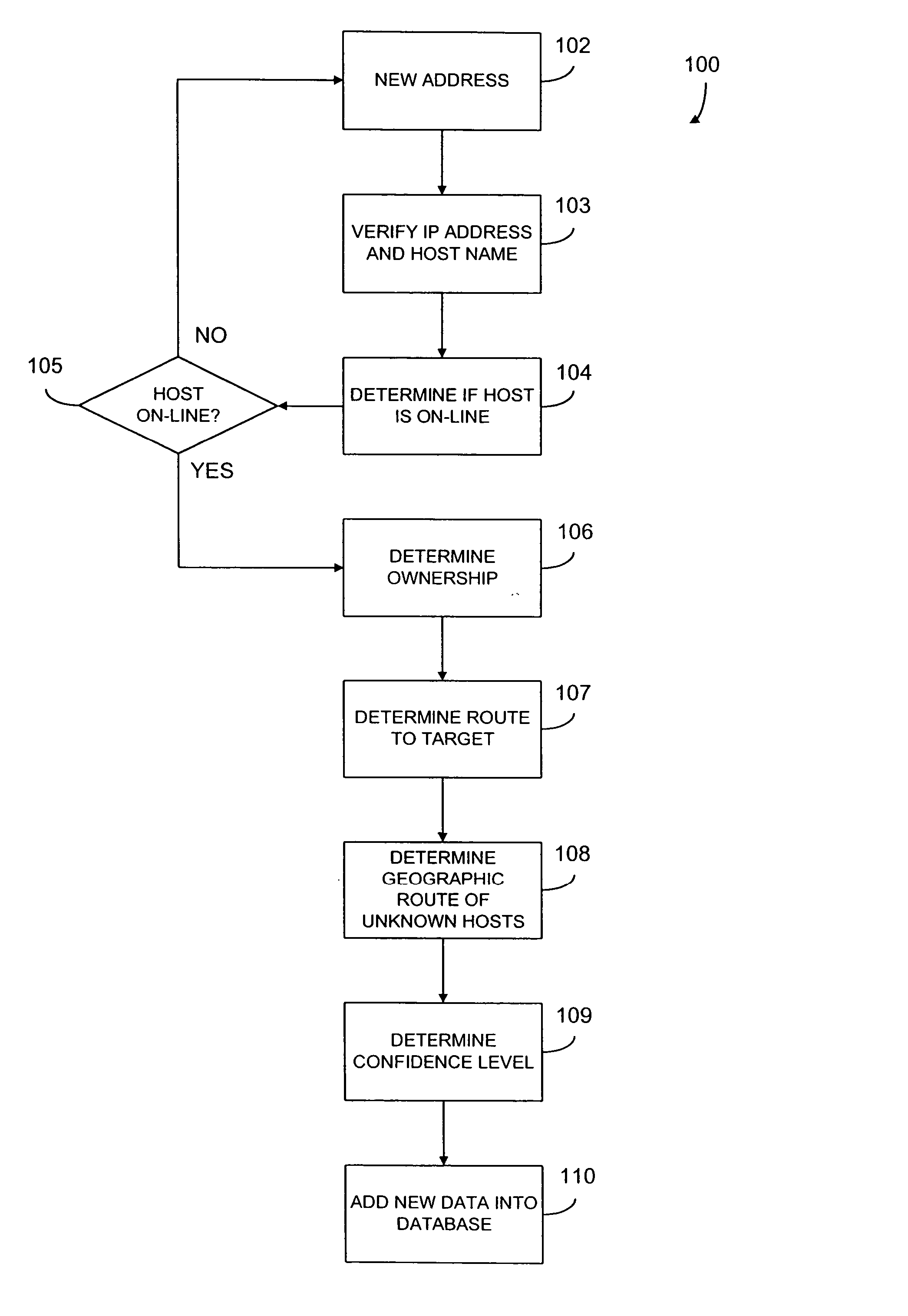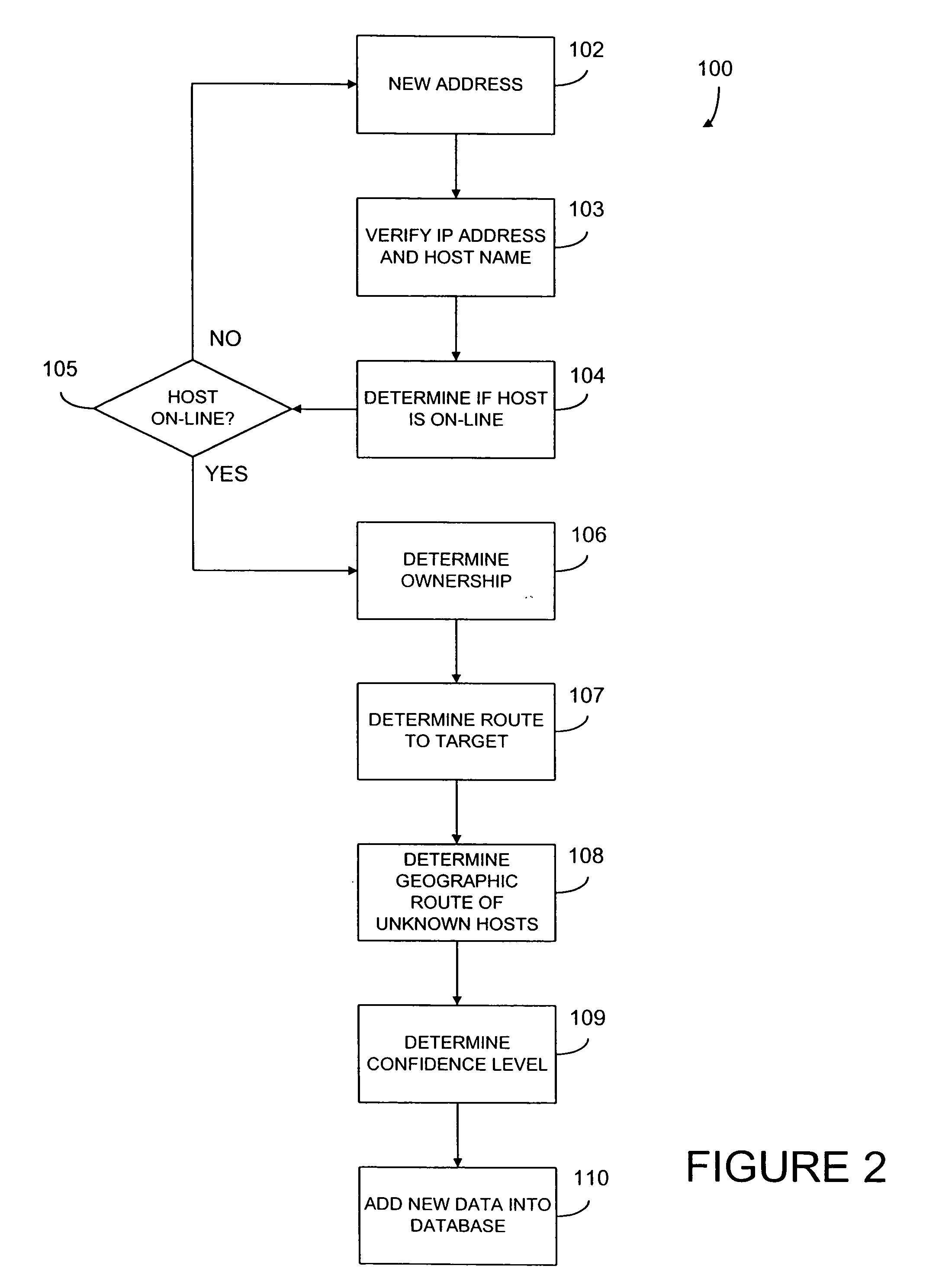Systems and methods for determining, collecting, and using geographic locations of Internet users
a technology of internet users and geographic locations, applied in the field of systems and methods for determining geographic locations of internet users, can solve the problems of not being very people-friendly, unable to convey useful information about the geographic address of the destination, and most people's ip addresses
- Summary
- Abstract
- Description
- Claims
- Application Information
AI Technical Summary
Problems solved by technology
Method used
Image
Examples
Embodiment Construction
Reference will now be made in detail to preferred embodiments of the invention, non-limiting examples of which are illustrated in the accompanying drawings.
I. Collecting, Determining and Distributing Geographic Locations
According to one aspect, the present invention relates to systems and methods of collecting, determining, and distributing data that identifies where an Internet user is likely to be geographically located. Because the method of addressing on the Internet, Internet Protocol (IP) addresses, allows for any range of addresses to be located anywhere in the world, determining the actual location of any given machine, or host, is not a simple task.
A. Collecting Geographic Location Data
A system 10 for collecting geographic information is shown in FIG. 1. The system 10 uses various Internet route tools to aid in discovering the likely placement of newly discovered Internet hosts, such as new target host 34. In particular the system 10 preferably uses programs known ...
PUM
 Login to View More
Login to View More Abstract
Description
Claims
Application Information
 Login to View More
Login to View More - R&D
- Intellectual Property
- Life Sciences
- Materials
- Tech Scout
- Unparalleled Data Quality
- Higher Quality Content
- 60% Fewer Hallucinations
Browse by: Latest US Patents, China's latest patents, Technical Efficacy Thesaurus, Application Domain, Technology Topic, Popular Technical Reports.
© 2025 PatSnap. All rights reserved.Legal|Privacy policy|Modern Slavery Act Transparency Statement|Sitemap|About US| Contact US: help@patsnap.com



